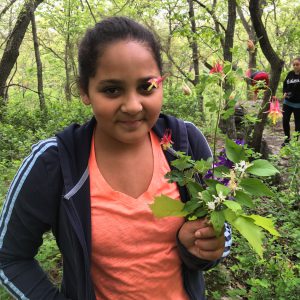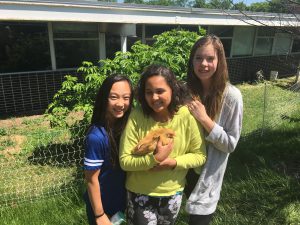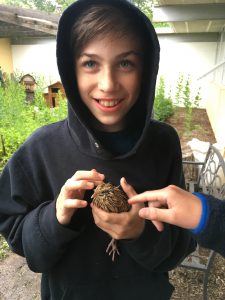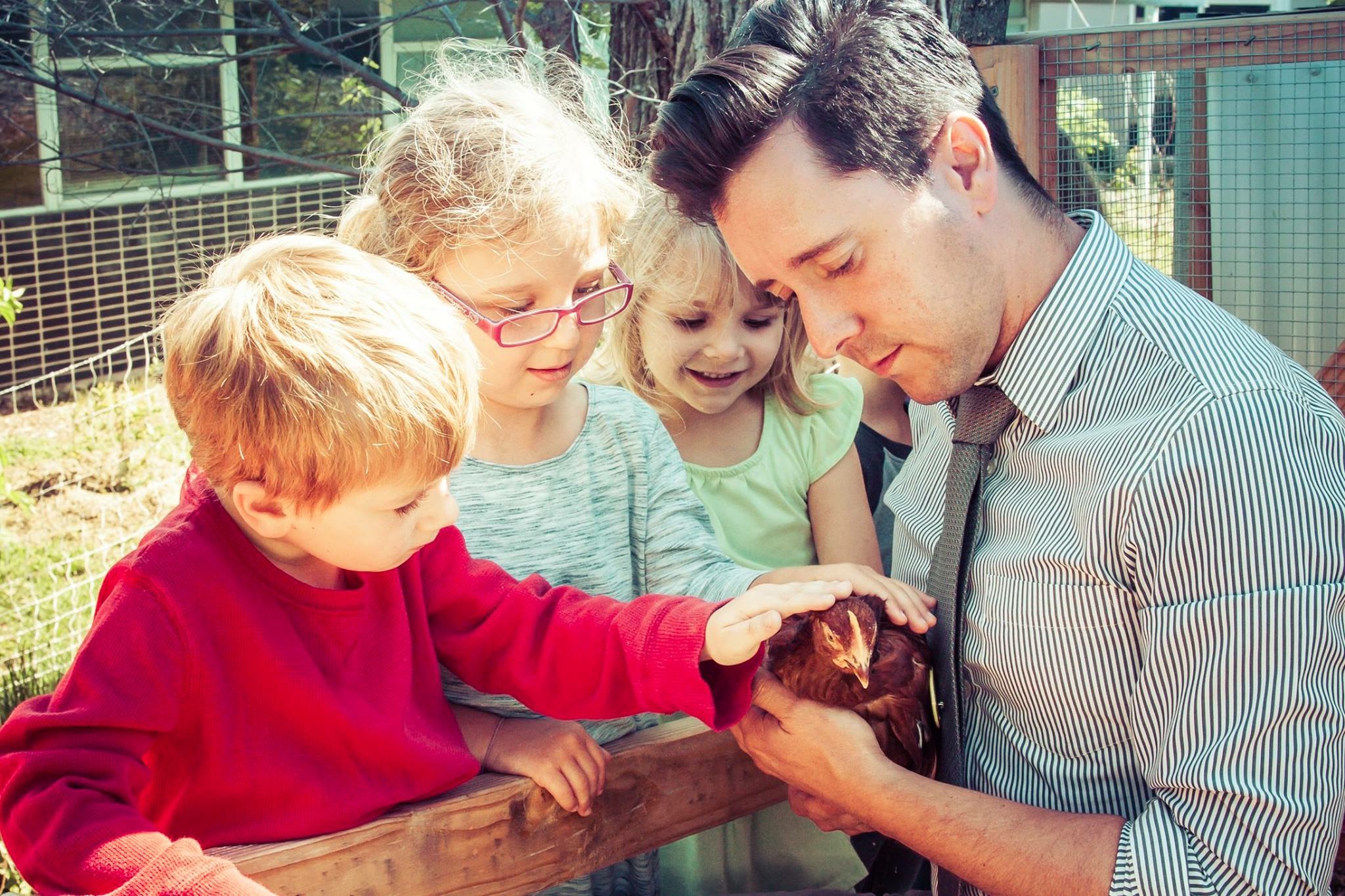
Of the three tenets of permaculture, as depicted by Bill Mollison, the notion of “people care” is, perhaps, the most essential. One of the most valuable lessons I have learned in my journey in permaculture (permanent culture / agriculture) is in focusing my efforts on the next generation. Let’s be clear, this is not an article about global warming, the melting ice caps, or a lesson in how to recycle more. There are plenty of well-researched articles written by scholars who have given their lives to such topics. This is about the importance of permaculture for kids. This article comes from my own experience working in youth ministry, 15 years in education, and as a neighbor with seemingly revolving doors on his house so the kids can come and get snacks before seeing the chickens.
Regardless of your beliefs regarding global warming and the many political agendas surrounding it, the reason you clicked this article is because you care about kids. So, based on that fact alone, we have something in common. This common ground allows us to have a healthy dialogue about WHY we do what we do. At the foundation of my journey in permaculture is the value of interacting with kids in order to help them be a part of a community that seeks to better the world they will one day inherit. These kids are not just future leader of tomorrow. They are tomorrow’s leaders – TODAY. They are impacting the world around them with vigor and passion.
Classrooms, worms, and the conversations with kids

As an educator for the last 15 years, I have taught in public / private school classrooms. I have been a keynote speaker at hundreds of conferences and seminars. I have written school curriculum and served as student council advisor for 10 years. In spite of platforms, I have learned that the most meaningful conversations often do not take place in the classroom or surrounding an assignment on Ralph Waldo Emerson (though I love his work). The most heartfelt times did not take place in a prom planning meeting or even at our end of the year parties. Those events were memorable and exciting, but I tell you, the most profound conversations took place outside, in nature, and usually in the garden. Something profoundly different took place during the times I worked with students in the garden and their hands hit the soil.
When these young adults came outside and their hands hit the flowerbeds, their guards went down, their defenses lowered, and their hearts opened up. Conversations would range from home and family, sports to God, and from dreams to fears. Whether we were out feeding chickens or chopping down wood in the forest beside the school, those moments were the most meaningful in my career as an educator. So, what did I learn? I learned that the sowing into the next generation is more than just giving them an assignment – it is sowing seeds with them.
Kids don’t need another manager – they need mentors
So, how then do we learn to be centered on the next generation? Simply put, we take time to care. Kids spell “love”, T-I-M-E. That is it. Take time to talk, weed slower, and get less done. To be honest, when I worked with 27 junior high students in my gardening class, I quickly learned that I could get more work done in 2 hours on my own than after a week of having them do it with me. However, speed is not the goal. Quality of weeding is not always the litmus test for impact.
If we want to change a life, we have to be willing to value families before we value function. We have to value people before a project.
People Care in Permaculture
 This core value of permaculture addresses the fuel for our projects. The reason we care for the earth is so that we can leave it as good or better for the kids who will live long after us. We want them to experience a better world in which they can experience a greater level of abundance than we have. Just think, when you were a child, kids rode bikes in the streets, would play out in the woods until the sunset, and would roam the neighborhoods as though it was their kingdom. We did not have to worry about a fraction of what kids today are faced with. And today, parents are terrified to let their kids go outside alone in many suburban areas. We need to impact our communities far beyond new recycling bins or switching to reusable shopping bags. If we think that stopping there is going to make a difference, we are kidding ourselves and petting our wounds by drinking overpriced coffee. Instead of settling for merely recycling to do our part, we need to be regenerative in our approach in order to reverse the damage we have already done. No longer is it enough for us to be “organic”, but we now need to restore the broken systems that even the USDA accepts as “certified organic”. Regenerative agriculture can no longer be a novelty form of gardening, it needs to become the norm if we are going to fix the damage we have done to our neighborhoods.
This core value of permaculture addresses the fuel for our projects. The reason we care for the earth is so that we can leave it as good or better for the kids who will live long after us. We want them to experience a better world in which they can experience a greater level of abundance than we have. Just think, when you were a child, kids rode bikes in the streets, would play out in the woods until the sunset, and would roam the neighborhoods as though it was their kingdom. We did not have to worry about a fraction of what kids today are faced with. And today, parents are terrified to let their kids go outside alone in many suburban areas. We need to impact our communities far beyond new recycling bins or switching to reusable shopping bags. If we think that stopping there is going to make a difference, we are kidding ourselves and petting our wounds by drinking overpriced coffee. Instead of settling for merely recycling to do our part, we need to be regenerative in our approach in order to reverse the damage we have already done. No longer is it enough for us to be “organic”, but we now need to restore the broken systems that even the USDA accepts as “certified organic”. Regenerative agriculture can no longer be a novelty form of gardening, it needs to become the norm if we are going to fix the damage we have done to our neighborhoods.
People care in permaculture is not only the “why” in caring for the earth, but it’s also the “why” behind the fair share aspect of permaculture. We want families to receive based on what they have sown. In permaculture, we seek to see families supplied for, fed well, educated to the highest degree, and kids receiving the support system they deserve. Each of the values in the permaculture system are hinged on the value we have for people – primarily kids.
Permaculture for Kids :: How to Step Out This Year
 Instead of merely gardening in your backyard this year, invite your kids (or grand kids) to join you. You might not weed as quickly, and you might need to buy a few boxes of bulk popsicles at Costco, but it will be worth it. Here are a few ideas to get you started with the kid friendly garden. The seeds you sow by opening up your garden to others will produce a much greater fruit that you could put on your table. Don’t get me wrong, it does have its challenges, but even those are not insurmountable. I am a single 35 year old guy, and can tell you that even the single community can invite neighbors from the houses next door to take part. If you don’t have neighbors, find a foster care home to serve or invite over, or call your local Big Brothers, Big Sisters organization. If people care is important to you, make time for it.
Instead of merely gardening in your backyard this year, invite your kids (or grand kids) to join you. You might not weed as quickly, and you might need to buy a few boxes of bulk popsicles at Costco, but it will be worth it. Here are a few ideas to get you started with the kid friendly garden. The seeds you sow by opening up your garden to others will produce a much greater fruit that you could put on your table. Don’t get me wrong, it does have its challenges, but even those are not insurmountable. I am a single 35 year old guy, and can tell you that even the single community can invite neighbors from the houses next door to take part. If you don’t have neighbors, find a foster care home to serve or invite over, or call your local Big Brothers, Big Sisters organization. If people care is important to you, make time for it.
Don’t settle for a flower for one. Grow a garden for all.

